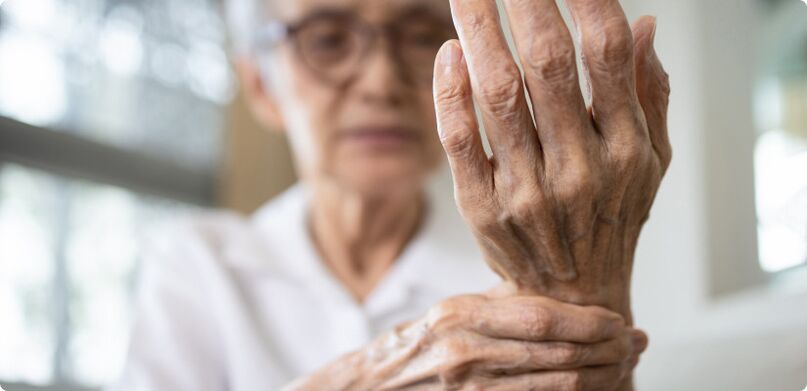
Modern medicine knows dozens, if not hundreds, of diseases of the musculoskeletal system. However, most often residents of our country are diagnosed with "arthritis" and "arthrosis", especially in the summer, when people, forgetting about precautions, cultivate their beds from morning to evening. What could this mean and, most importantly, how to avoid joint disease?
Arthritis and arthrosis: what is the difference
There is a big difference between arthritis and osteoarthritis. The ending "-itis" in Latin, considered the native language of medicine, always indicates that there is an active process of inflammation in the body. This, relatively speaking, is the first stage of joint disease.
But osteoarthritis, in most cases, is a natural result of arthritis.
Dmitry Tarasov draws an analogy, comparing joint diseases with recent and old calluses. In the first case, liquid accumulates under the skin - the wound becomes inflamed and causes discomfort. An old callus doesn't hurt - the skin has died and is therefore insensitive. The same happens with a joint: in the last stage of osteoarthritis, there are no cartilaginous cells left, only the bone that forms the joint — this is called osteoarthritis.
The terms "arthritis" and "osteoarthritis" apply to all joints. Its pathologies can be divided into several groups:
- diseases of the large joints, particularly the hip and knee;
- spinal pathologies associated with radicular syndromes, intervertebral discs and facet joints;
- arthritis and arthrosis of small joints;
- diseases of the wrists, elbows and radiocarpal joints.
As Dmitry Tarasov notes, joint pathologies in the early stages are treated conservatively. Anti-inflammatory and chondroprotective drugs are prescribed - medicines that improve the functions of damaged joints and limit the load on them when using crutches or a cane.
The main task of the doctor is to reduce the manifestation of the process and "smooth out" arthritis.
Osteoarthritis, unlike arthritis, cannot be cured with conservative methods. There is only one way out - endoprosthetics, joint replacement. That's why it's so important to take care of your joints throughout your life, from a young age, and not just when they start to hurt.
Causes of Arthritis
The most common cause of arthritis is the natural course of life of the joint. With age, cartilage becomes thinner and destroyed. Therefore, doctors claim that almost all elderly people can be diagnosed with this disease.
However, arthritis can occur for other reasons. Most often - as a consequence of diseases associated with metabolic disorders. Or, say, a person catches a cold, becomes ill, and the causative agent of the disease enters the joint, causing its inflammation - this is also arthritis, but of a different nature.
The most common are arthritis after stress and injuries. I arrived at the dacha, dug up the beds or went to the gym - and the next day my knees were swollen. After a few days, the pain gradually subsided. This is post-exertional arthritis.
A sedentary lifestyle is also harmful to your joints. Furthermore, the phrase "movement is life", according to the expert, is said mainly about the joints. They need to move to function properly. And if a person isn't active, their muscles and ligaments — everything that forms joint stability — begin to weaken. And at the slightest load they can fail.
What to do if you are shot in the back
Everyone knows the feeling of being shot in the back. As a rule, the pain lasts a few minutes - and then the person happily forgets about the unpleasant incident. Until next time.
In fact, acute back pain can be associated with many serious reasons and therefore should not be ignored. First of all, you need to contact a neurologist or orthopedist. The doctor will prescribe certain research methods: x-ray or MRI. After that, the further algorithm of actions will become clear.
Therefore, if the examination shows that the back pain is muscular, the doctor will exclude some movements and recommend reducing physical activity. However, it is possible that low back pain is associated with damage to intervertebral discs, the formation of protrusions and hernias - then emergency treatment, including surgery, will be required.
It is important to know that the treatment of spinal pathologies is often carried out by neurologists and spine surgeons, and not by orthopedic surgeons. And this is logical, given the proximity between the spine and the nervous system.
Will vitamins and orthopedic protection help?
Many people take bone and joint vitamins without a prescription. However
Dmitry Tarasov warns that in this case they will not help, but will harm. For example, increasing your calcium intake will strengthen your bones but can have a negative impact on kidney function. That is why, before starting a course of vitamins, you should consult a doctor - an endocrinologist or therapist.
Another way to protect your joints is to purchase orthopedic products: knee pads, corsets, orthoses, bandages. However, such products "take over" part of the functions performed by the human musculoligamentous apparatus. If he is healthy, the use of orthotics will cause the ligaments and muscles to begin to become "lazy" and weakened. And this can cause serious pathologies. There is only one conclusion: before buying "protection" for your joints, consult a doctor.
When playing active sports, always wear elbow and knee protection. They will not save you from serious joint injuries, but they will minimize their damage, and will also protect your skin from damage.



















